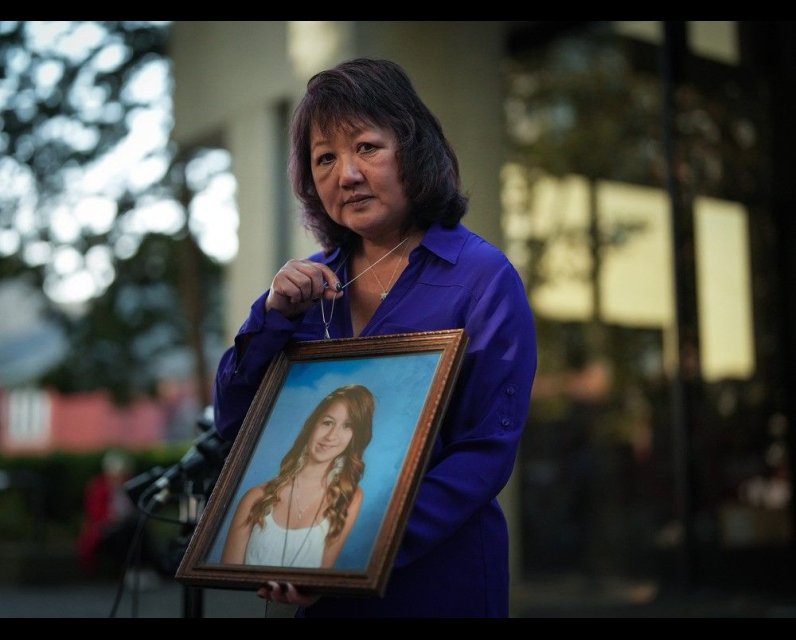Mother of Amanda Todd says Carney government's scaled down online safety effort is 'not enough'

OTTAWA — The mother of Amanda Todd says the federal Liberal government’s plan to target online harms through Criminal Code changes is “not enough” and wants to see a focus on prevention, including by regulating tech companies.
Carol Todd, whose daughter’s 2012 death put a spotlight on the scourge of online sextortion, says that given the Liberals’ attempt to pass the Online Harms Act failed to pass Parliament before it was prorogued, she had been hoping the next government would table a new online safety bill.
She says a feeling of disappointment has now settled in, as, nearly six months after Prime Minister Mark Carney formed government, she has heard “nothing” about potential plans.
“They knew how important this online harms bill was to many people, right, and why it was important,” Todd told National Post in a recent interview.
“It’s really important, but I’ve heard squat, diddly squat, and that’s not making me happy right now.”
Todd says that, as an educator who advocates for greater awareness of online safety and media literacy, as well as a mother who lost a child through online harms, and a Canadian who speaks to many parents, she is concerned that taking on the issue does not appear to be a priority for Carney’s government.
“I want to know from them that this is a priority. This needs to be done, and when will it be done? When will it be started? And what are you going to do? How are you going to do it?”
Carney’s government has so far not specified whether it intends to reintroduce a version of the former Online Harms Act, which sought to establish a new regulator and compel social media companies to take steps to better protect users from harmful content online.
The bill also proposed stiffer punishments for hate crimes and to allow the Canadian Human Rights Tribunal to hear cases based on hate speech, provisions that were widely panned by civil liberties advocates and viewed by digital safety experts as belonging in a separate bill.
Justice Minister Sean Fraser recently introduced a bill aimed at cracking down on hate crimes, which includes defining “hatred” in the Criminal Code, which was proposed in the earlier online harms bill.
Fraser has said that while he also plans to fulfil a campaign promise to legislate against “certain criminal behaviours online,” wider questions about the government’s approach to online harms ought to be directed to other colleagues.
One of those colleagues is Heritage Minister Steven Guilbeault, whose spokeswoman referred to Fraser’s hate bill and other campaign commitments Carney made to take action against online sexploitation and extortion, when asked whether the Liberals plan to reintroduce any internet governance provisions from the former online harms bill.
“It is a priority, and our government will have more to say in due course,” Hermine Landry said in a statement.
The Liberals also promised during the election campaign to criminalize the non-consensual sharing of “sexualized deepfakes,” a term that includes images generated by artificial intelligence.
As National Post previously reported, ministers have been awaiting direction from the Prime Minister’s Office on online harms, while Carney is consumed with the ongoing trade war with U.S. President Donald Trump and furthering his economic agenda.
The lack of clarity has left many stakeholders, including those in the field of children’s health, to call on the government to introduce measures that hold platforms more accountable for the content they host, citing an increase in mental-health-related distress in children, from depression and anxiety to eating disorders and self-harm.
While Todd believes Criminal Code changes are needed, she said what the Liberals have proposed through the Criminal Code was “not enough” in dealing with the issue, given it was reactive.
“We need prevention,” she said, adding that fostering better education and awareness among parents is also required.
“The last thing we want is to have to go to court. Court’s a horrible thing. I’ve done it, right, but I was one of the lucky ones that they caught Amanda’s predator. How many people don’t have that opportunity to face the predator because they were never caught?”
Aydin Coban, a Dutch national, was sentenced to 12 years for possessing child pornography and harassing Todd, which Dutch authorities reduced to six years.
Coban had already been imprisoned in the Netherlands for similar offences against other victims.
A B.C. court heard that Coban spent years tormenting Todd, who died by suicide at 15.
Before her death, Todd filmed a roughly nine-minute video, using flash cards to detail the horrors of what she experienced.
Her video, which remains posted, has garnered at least 15 million views on YouTube.
– With files from The Canadian Press
Our website is the place for the latest breaking news, exclusive scoops, longreads and provocative commentary. Please bookmark nationalpost.com and sign up for our politics newsletter, First Reading, here.

Comments
Be the first to comment